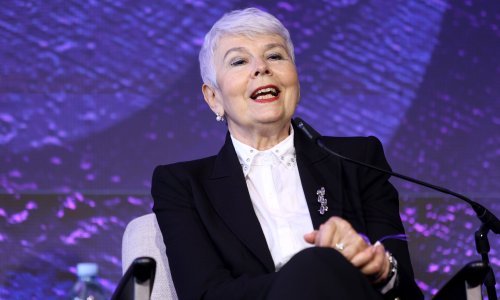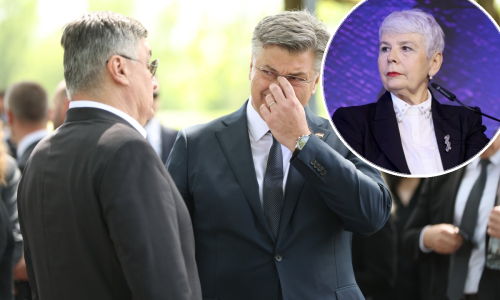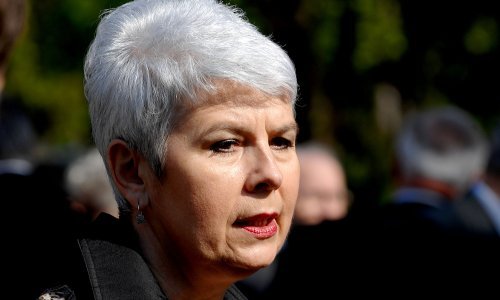Croatia has made great progress in reforms and it is very close to accomplishing its goal of joining the European Union, which will depend on its commitment to fully meet the set criteria, primarily in the area of judiciary and fundamental rights, it was said at a two-day conference of the European People's Party (EPP) Group Bureau which started in Zagreb on Thursday.
The EPP Group Bureau organised the conference "Croatia: A New Model for Enlargement" in Zagreb as a way of showing its support to Croatia, which is close to completing its EU entry talks.
The first day of the conference was dedicated to challenges and expectations from EU membership, with emphasis on the judiciary and fundamental rights and economic effects of EU membership, while Friday will be dedicated to debates about the EU membership prospects of Southeast Europe, regional cooperation and the EU's role in the region.
The conference opened a day after the European Commission published an interim report on Croatia's meeting additional criteria (benchmarks) for the policy area No. 23, Judiciary and Fundamental Rights, on which the completion of the country's EU entry talks depends. The EC said that Croatia had made significant progress in that area and that it should continue investing efforts to create a more convincing track-record.
European Justice Commissioner Viviane Reding said at the conference that since her last visit to Croatia in the autumn of 2010, the country had made significant progress in the area of judiciary and fundamental rights, and that it had met, to a great extent, criteria for admission to the EU, which she said was close at hand.
The EC's main messages are about substance and not form, and about the need to implement all benchmarks in the policy area No. 23, Reding said, explaining that the policy area Judiciary and Fundamental Rights was a key area guaranteeing that the candidate country was ruled by law and that it ensured respect for basic human rights.
There must not be any weaknesses in that area on the day of accession, she said, adding that full compliance with obligations was the basis of the accession process.
Reding called on Croatia to continue investing efforts to increase judicial efficiency and autonomy, reduce the case backlog, notably old civil cases, and investigate and prosecute war crimes.
It is also necessary to pursue the fight against corruption, notably high-profile corruption cases, as well as improve minority representation in the public sector and solve refugees' housing problems, she said.
Addressing the conference, Croatian Justice Minister Drazen Bosnjakovic presented measures taken to meet EU requirements in the area of the judiciary.
He said that Croatia was strongly committed to change, and that it saw the set criteria as encouragement to continue building its judicial system.
"We want an efficient judiciary, zero tolerance to corruption, and protection of human and minority rights," the minister said.
In its new strategy for the reform of the judiciary for the period from 2011 to 2015, Croatia has placed emphasis on the enforcement of the adopted measures, as requested by the EU, he said.
The appointment of members of the Judicial Appointment Council and the Prosecutorial Appointment Council has been depoliticised, the national academy for judicial officials started working in January, the number of courts has been reduced, as has the number of backlog cases, from 1.6 million in 2006 to 700,000-800,000, and those cases are to be closed in the next two years, Bosnjakovic said.
Committed to its policy of zero tolerance to corruption, Croatia has adopted a law on the confiscation of illegally acquired property, a new law on the police, which guarantees depoliticising of the police force, and a number of anti-corruption measures, Bosnjakovic said.
EPP member of the European Parliament Bernd Posselt, the shadow rapporteur for Croatia and member of the Croatia-EU Joint Parliamentary Committee, said that the EU should not be setting unfair criteria for Croatia.
Posselt said he believed that Croatia should have joined the EU with Slovenia and that it was not guilty that one-third of its territory had been under occupation.
We urge justice for Croatia, not giving up on the set criteria, but justice, said Posselt.
He went on to say that no other country in the region had done so much to help refugees, recalling that Croatia's EU entry talks had been blocked for a long time due to the case of Croatian army general Ante Gotovina.
As for the status of ethnic minorities, Posselt said that the incumbent Croatian government included minority parties.
On Friday, the second day of the Zagreb conference, EPP deputies will discuss the impact of Croatia's EU membership on the EU membership prospects of other Southeast European countries, and regional cooperation.
The meeting will be addressed, among others, by Croatian Foreign Minister Gordan Jandrokovic and Albanian European Integration Minister Majlinda Bregu.
The head of the EU Delegation in Serbia, Vincent Degert, the EU's Special Representative in Bosnia and Herzegovina, Valentin Inzko, and the chair of the European Parliament's Committee on Culture and Education, Doris Pack, will address the conference on the topic of the EU's responsibility in the region.
The EPP is a conservative and the largest political group in the European Parliament, with 265 deputies. Its Bureau has some 70 members who all hold positions in European Parliament bodies or the EPP Group.


































